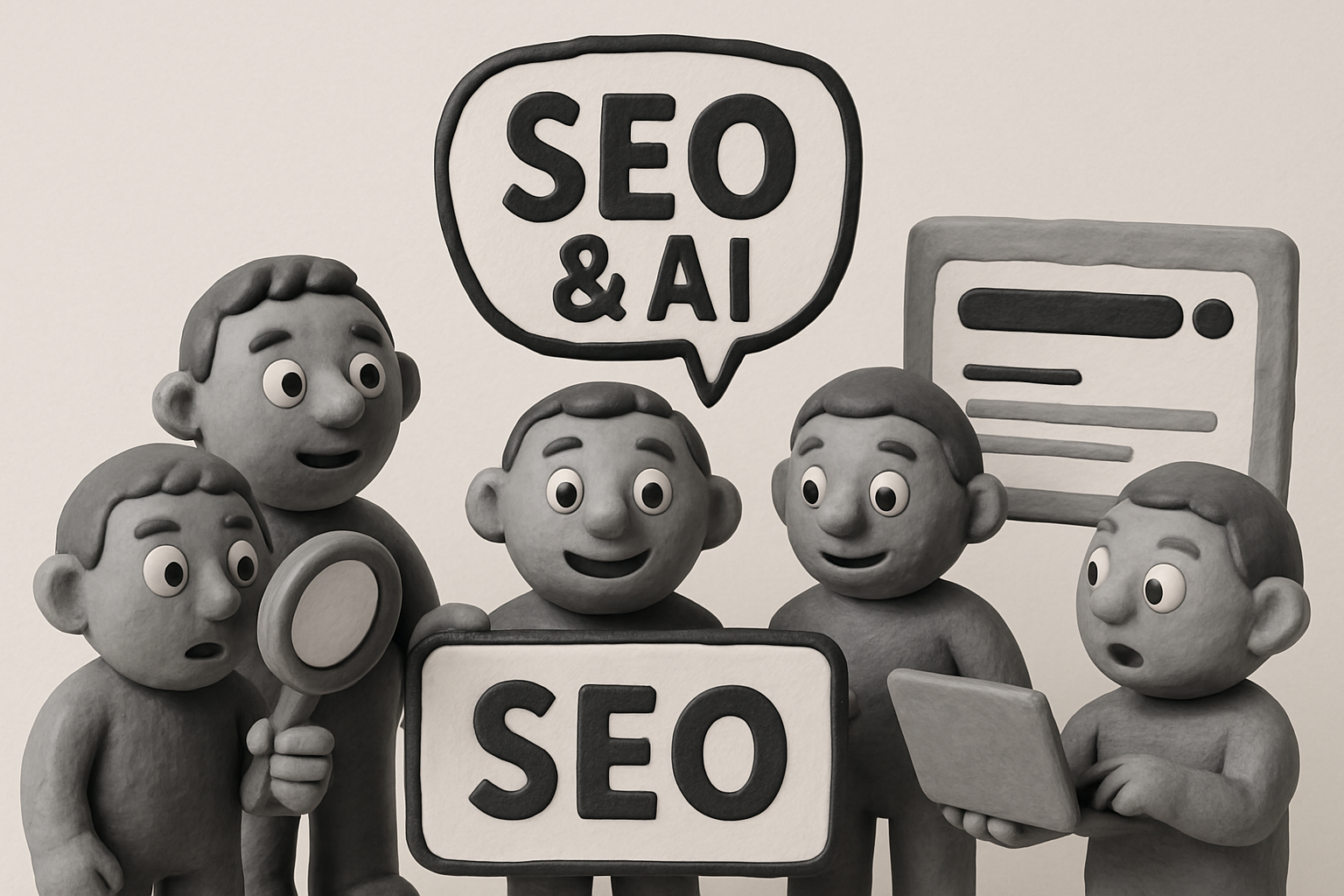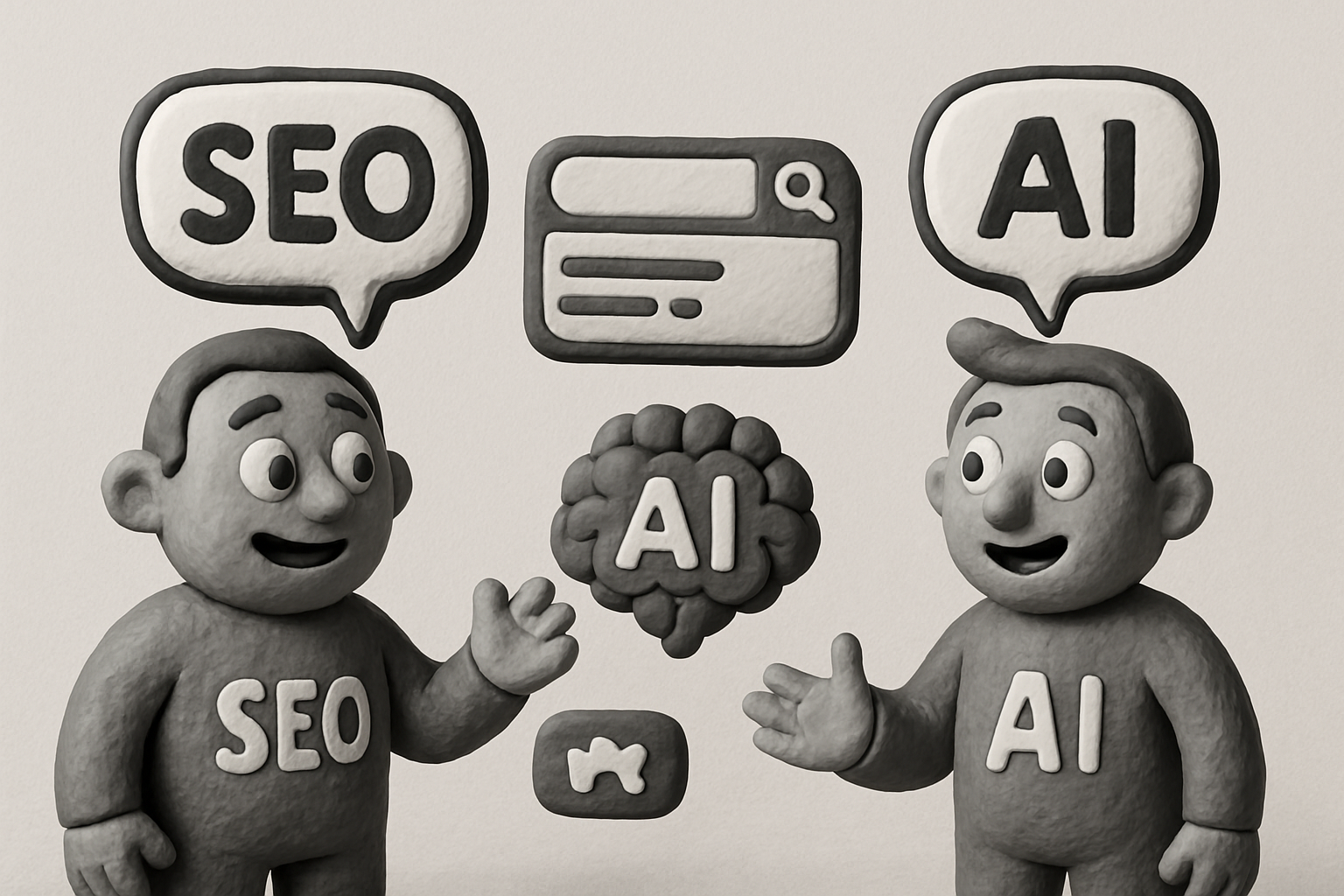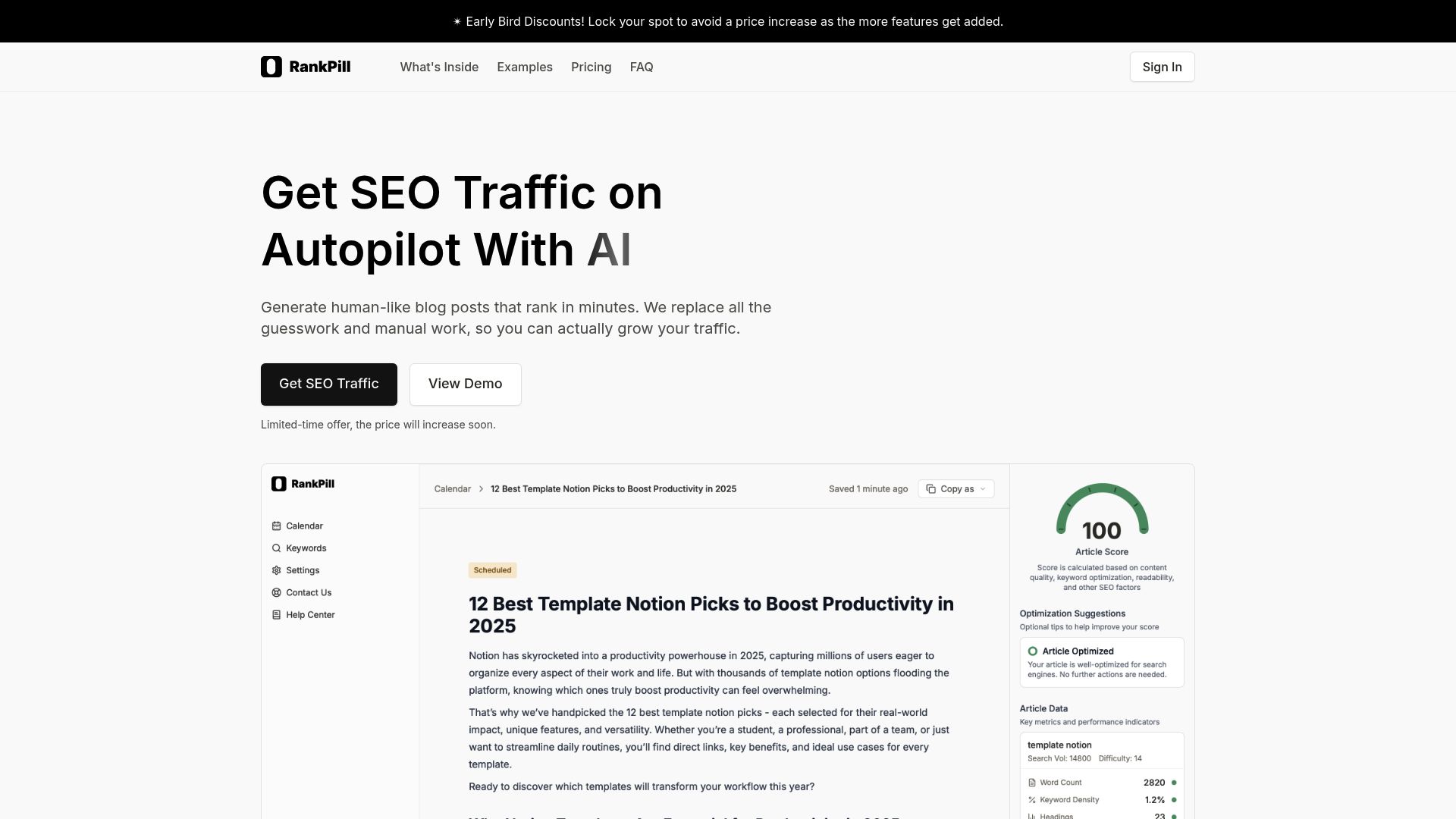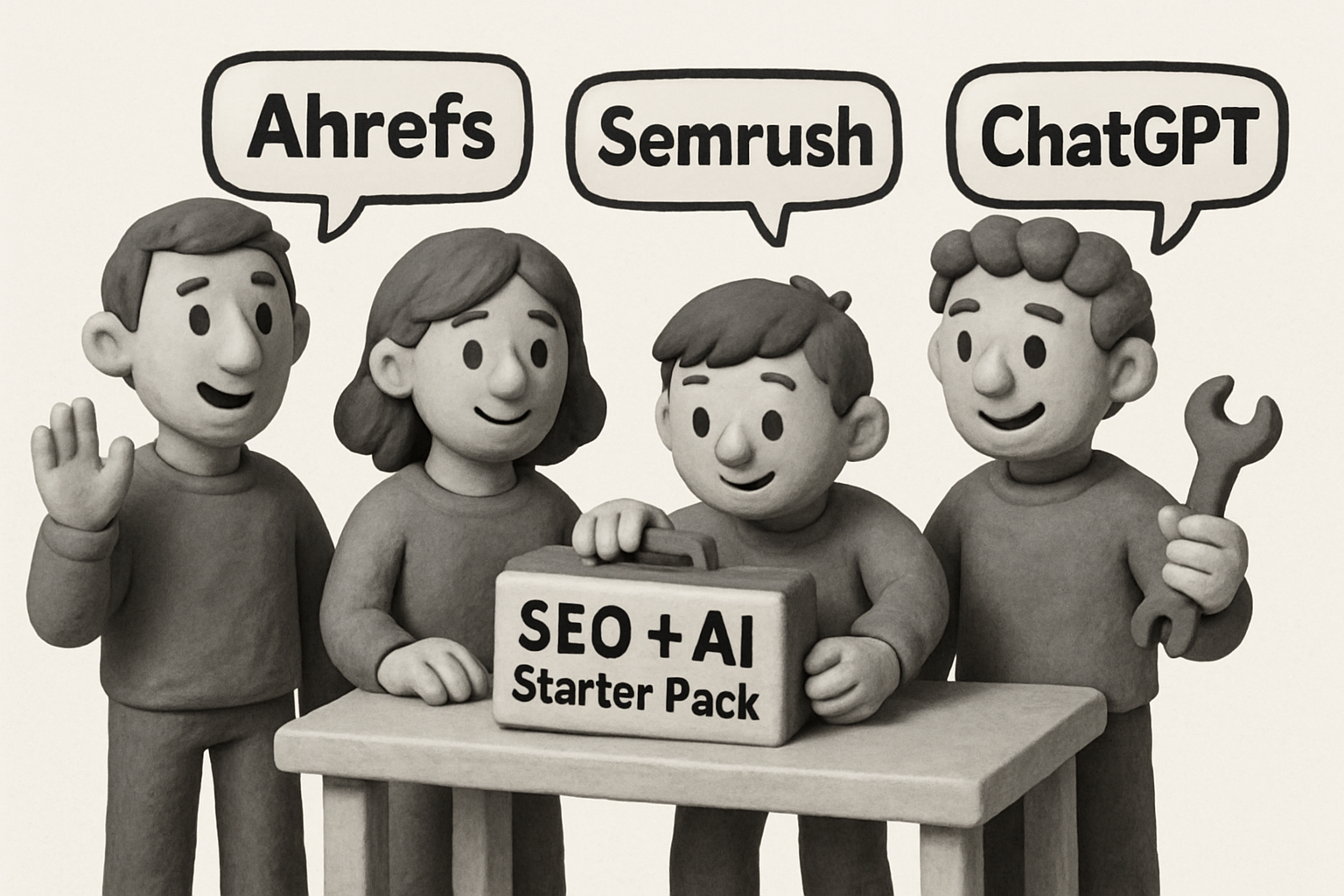Imagine boosting your website traffic in 2025 with the combined power of seo and ai—even if you’re not a tech expert. It sounds futuristic, but it’s now within reach for everyone.
This guide is designed to break down the essentials of seo and ai for beginners. You’ll discover why these tools matter, how they work together, and the simple steps you can take to get started.
Inside, you’ll explore the foundations of SEO, the latest AI-driven search trends, essential tools, and practical strategies for real-world results. Ready to transform your online presence? Let’s dive in and unlock the future of digital growth.
Understanding SEO: The Foundations for 2025
Search engines are more powerful than ever, and understanding their mechanics is crucial if you want your website to succeed. In 2025, the fusion of seo and ai is reshaping how brands, creators, and businesses get discovered online. Let’s break down what SEO really means today, and how it forms the backbone for your digital presence.

What is SEO and Why Does It Matter?
SEO, or Search Engine Optimization, is the process of improving your website to increase its visibility on search engines like Google and Bing. In 2025, seo and ai go hand in hand, helping even small businesses compete with industry giants.
Why does this matter? Over 68% of online experiences begin with a search engine (BrightEdge, 2024). Whether you’re running an e-commerce store, a local business, or a personal blog, strong SEO can drive organic traffic, boost brand recognition, and deliver a better return on investment than most paid ads.
Consider this: a local bakery can outshine a national chain in search results simply by leveraging the right SEO strategies. That’s the power of combining seo and ai.
Core Components of Modern SEO
Modern SEO is more than just keywords. It’s a blend of on-page, off-page, and technical strategies:
On-page SEO: Quality content, optimized keywords, and clear meta tags.
Off-page SEO: Earning backlinks, building authority, and gaining social signals.
Technical SEO: Improving site speed, mobile usability, and using structured data.
For example, a small business improved its rankings dramatically after fixing slow load speeds and adding mobile-friendly layouts. Did you know 53% of mobile users will abandon a site if it takes more than 3 seconds to load (Google, 2023)? That’s a huge opportunity.
Today, tools that merge seo and ai, like AI-driven SEO tools overview, help automate and optimize these components for maximum impact.
How Search Engines Work in 2025
Search engines have evolved. They now use sophisticated AI algorithms to crawl, index, and rank billions of web pages. In 2025, seo and ai are inseparable in this process.
Crawling is how search engines discover pages. Indexing is about storing and organizing content. Ranking determines what shows up first. AI-driven updates, such as Google’s MUM, personalize search results based on context—think voice and visual search trends, not just written queries.
This means your website’s content needs to be relevant, high quality, and structured for both humans and machines. The result? A better user experience and more precise results for searchers.
The Role of Keywords and User Intent
Gone are the days of simply stuffing pages with keywords. Modern seo and ai focus on understanding what users actually want—this is called search intent.
There are four main types of search intent:
Informational: Looking for answers (e.g., “How does seo and ai work?”)
Navigational: Seeking a specific website
Transactional: Ready to buy or take action
Commercial: Comparing products or services
Tools like Google Search Console and SEMrush use AI to analyze intent and surface long-tail keywords—70% of queries are now long-tail (Ahrefs, 2024). For example, a travel blog might map intent-focused keywords to specific articles, ensuring visitors find exactly what they need.
Common SEO Mistakes Beginners Make
Even in 2025, beginners often stumble on the basics. Here are common seo and ai pitfalls:
Overlooking technical SEO issues
Creating multiple pages that compete for the same keyword (keyword cannibalization)
Over-optimizing with unnatural keyword use
Ignoring mobile-friendliness and user experience
Sticking to outdated tactics instead of embracing new AI-driven methods
Avoid these mistakes by prioritizing a balanced, up-to-date approach. Remember, staying current with seo and ai trends is the key to long-term visibility and success.
The Rise of AI in SEO: Transforming Search and Content
Artificial intelligence isn’t just a buzzword in digital marketing anymore—it’s fundamentally reshaping how search engines work and how websites get discovered. The fusion of seo and ai is transforming everything from rankings to the user experience. Let’s break down what this means for beginners and how you can take advantage of these changes.

How AI is Changing Search Engines
Today’s search engines are powered by sophisticated AI algorithms—think RankBrain, BERT, and Google’s MUM. These systems analyze context, intent, and even the nuances of language to deliver ultra-personalized results. Gone are the days of simply matching keywords. Instead, seo and ai work together to understand what users truly want, adapting results in real time.
AI now powers features like featured snippets and answer boxes, offering direct solutions right on the results page. If you want a deeper dive into how AI shapes search rankings, check out this How AI impacts search rankings guide. The result? Smarter SERPs, more engaging experiences, and a new era for website owners.
AI-Powered Content Creation and Optimization
With seo and ai, content creation is no longer a guessing game. Natural Language Processing (NLP) tools assess content quality, ensuring it’s both readable and relevant for your audience. AI-driven platforms can generate blog posts, product descriptions, and even rewrite meta descriptions to boost your click-through rates.
Platforms like Jasper and Copy.ai use advanced models to create content ideas, suggest improvements, and optimize for SEO best practices. This means you can focus on strategy and creativity, letting AI handle the heavy lifting—making seo and ai a powerful duo for beginners and pros alike.
AI for Keyword Research and Competitor Analysis
Keyword research has evolved thanks to the partnership of seo and ai. Automated tools can now uncover high-value keywords, analyze search trends, and predict which topics will become popular. AI-driven competitor analysis goes a step further, revealing gaps in your strategy and identifying untapped opportunities.
For example, instead of manually sifting through endless keyword lists, AI platforms like SEMrush and Ahrefs suggest the best terms to target based on your niche and competition. This efficiency means you spend less time on research—and more time growing your site with seo and ai.
Enhancing User Experience with AI
User experience is at the heart of modern seo and ai strategies. AI chatbots and virtual assistants make websites more interactive, answering questions and guiding visitors in real time. Personalized recommendations, powered by machine learning, ensure content and products are tailored to each visitor’s interests.
AI also drives UX improvements through tools like heatmaps and automated A/B testing, making it easier to spot what’s working (and what’s not). In fact, 80% of consumers now expect personalized experiences—further highlighting why seo and ai are essential for site success.
Challenges and Ethical Considerations
Despite the benefits, seo and ai present new challenges. AI-generated content can sometimes lead to spam, misinformation, or low-quality pages, which search engines are quick to penalize. Over-reliance on automation may also blur the lines of authenticity and trust.
To stay on the right side of SEO, focus on transparency, ethical use, and maintaining a human touch in your content. By understanding these risks and using AI responsibly, you’ll ensure your seo and ai efforts build long-term, sustainable growth.
Step-by-Step Guide: Getting Started with SEO and AI
Ready to harness the full potential of seo and ai? This step-by-step guide walks you through every essential move, from setting goals to leveraging automation. Whether you’re a complete beginner or just need a refresher, follow these actionable steps to boost your online visibility in 2025.
Step 1: Define Your SEO Goals and Audience
Start your seo and ai journey by clarifying your objectives. Are you aiming for more website visits, increased leads, or higher sales? Defining clear goals helps you measure progress and stay focused.
Next, dig into your audience. Who are they? What problems do they face? Use tools like Google Analytics to uncover demographics and popular pages. Create simple personas to visualize your ideal visitors.
Identify pain points and common search terms.
Map goals to audience needs.
Example: A local bakery targets "gluten-free cakes" to attract health-conscious customers.
When your seo and ai strategy aligns with real user needs, you’re set up for success.
Step 2: Conduct Keyword Research with AI Tools
With your goals set, dive into keyword research using modern AI tools. Platforms powered by seo and ai can uncover high-value keywords, analyze competitors, and predict trending topics in real-time.
Focus on long-tail keywords—they’re less competitive and align better with user intent. For example, an AI tool might suggest "best vegan bakery near me" instead of just "bakery."
Use AI to surface trending phrases.
Analyze intent (informational, transactional, etc.).
Example: AI highlights seasonal keyword spikes for your niche.
These insights make your seo and ai efforts more targeted and efficient, saving you valuable time.
Step 3: Optimize Your Website for On-Page and Technical SEO
Once you have your keywords, it’s time to optimize your site. Seo and ai platforms can perform audits, flag broken links, and suggest improvements for meta tags, headings, and internal links.
Technical SEO is crucial—ensure your site loads fast, is mobile-friendly, and uses structured data. AI-powered tools can even automate some fixes, boosting your rankings with minimal manual effort.
Optimize images and videos for speed.
Use schema markup for rich results.
Example: AI detects and repairs slow-loading pages instantly.
Keep your seo and ai toolbox updated for ongoing improvements.
Step 4: Create High-Quality, AI-Enhanced Content
Content is king, but in 2025, it’s all about smart content powered by seo and ai. Use AI writing assistants for brainstorming, drafting, and optimizing blog posts or product descriptions.
Ensure originality—AI can help check for duplicate content and suggest engaging headlines. Integrate multimedia like images or videos, and let AI recommend the best formats for your audience.
Generate schema markup with AI.
Follow SEO best practices automatically.
Example: AI suggests related topics to cover in your next post.
With seo and ai, high-quality content creation becomes more efficient and impactful.
Step 5: Build Authority with AI-Assisted Link Building
Link building remains a pillar of seo and ai strategies. AI tools can analyze your competitors’ backlink profiles, identify opportunities, and even automate personalized outreach.
Monitor your backlinks for quality—AI flags toxic or irrelevant links for removal. Want to learn more? Discover how building backlinks with AI assistance can elevate your authority and streamline the entire process.
Find niche-relevant websites for outreach.
Automate follow-ups and track responses.
Example: AI uncovers local directories perfect for your business.
Smart link building with seo and ai boosts your credibility and rankings.
Step 6: Monitor, Analyze, and Improve Performance
Continuous improvement is the heart of effective seo and ai. Use AI-powered dashboards to track rankings, traffic, and conversions in real-time.
A/B test headlines and calls-to-action, letting AI identify what resonates best with your audience. When a page’s performance drops, AI can suggest updates or highlight new keyword opportunities.
Review analytics weekly.
Set up automated alerts for ranking changes.
Example: AI recommends updating old blog posts to regain lost traffic.
With seo and ai, optimization never stops.
Step 7: Stay Updated with SEO and AI Trends
The seo and ai landscape evolves rapidly—staying current is essential. Follow industry blogs, attend webinars, and subscribe to Google updates.
Leverage AI-driven tools to monitor algorithm changes and SERP volatility. For instance, AI can alert you to sudden shifts in your rankings, so you can react quickly.
Join SEO communities for support.
Experiment with new features and strategies.
Example: AI flags a new competitor climbing the rankings.
Adaptation keeps your seo and ai strategy future-proof.
How AI Platforms Like RankPill Simplify SEO for Beginners
Platforms like RankPill transform seo for beginners by automating keyword research, content creation, and optimization. With end-to-end automation, you save time, reduce costs, and eliminate guesswork.

RankPill’s AI-driven competitor analysis and personalized keyword targeting make scaling your seo and ai efforts easy. Real-life users—like small businesses—have seen significant organic growth thanks to consistent content scheduling and integrated media.
For startups and marketing teams, RankPill offers a scalable, beginner-friendly path to SEO success.
Essential Tools and Resources for SEO and AI Beginners
Navigating the world of seo and ai can feel overwhelming, but having the right tools and resources makes all the difference. Whether you're building a new website, starting a blog, or running a small business, your toolkit will shape your results. Here’s a breakdown of the must-haves and where to find them.

Must-Have SEO Tools in 2025
A solid foundation in seo and ai starts with the right tools. These platforms help you research keywords, optimize pages, and fix technical issues—all critical for visibility and growth.
| Tool | Purpose | Best For |
|---|---|---|
| SEMrush, Ahrefs | Keyword research | Beginners, pros |
| Google Keyword Planner | Keyword ideas | Free users |
| Surfer SEO, Clearscope | On-page optimization | Content creators |
| Screaming Frog, Sitebulb | Technical SEO | Site audits |
For beginners, compare features and choose tools that match your goals and comfort level. Don't overlook the value of integrated platforms that blend seo and ai to automate time-consuming tasks.
Top AI-Powered SEO Solutions
AI has revolutionized seo and ai by bringing automation and data-driven insights to the forefront. Content generation tools like Jasper and Copy.ai use AI for fast, quality writing. MarketMuse and Frase analyze pages and suggest improvements, while Postaga and Respona streamline link building.
Optimizing for modern search engines also means understanding generative engine optimization strategies. These approaches help ensure your content is discoverable and relevant in AI-driven search results.
Choose AI solutions that align with your workflow. Whether you’re creating articles or tracking competitors, there’s an AI tool for every need in seo and ai.
Free Resources for Learning SEO and AI
Learning seo and ai doesn’t have to break the bank. There are outstanding free resources to help you get started and build your skills step by step.
Google Search Central: Official search documentation and best practices.
Moz Beginner’s Guide: Comprehensive and beginner-friendly.
HubSpot Academy & Coursera: Free courses on seo and ai fundamentals.
Podcasts & YouTube: Stay updated with tips and real-world examples.
Follow a structured learning path—start with the basics, then branch into advanced topics as you grow more confident in seo and ai.
Building Your Own SEO and AI Toolkit
Your seo and ai toolkit should reflect your unique needs. Combine free and paid tools for a balanced setup and update your stack as new technology emerges.
Start small if you’re launching a new blog: a keyword research tool, an on-page optimizer, and one AI-powered content generator. As your site grows, add more advanced analytics and link-building solutions.
Regularly audit your toolkit to ensure it’s still serving your goals. The right mix of tools will help you get the most out of seo and ai—no matter your budget or experience.
Future Trends: Where SEO and AI Are Headed in 2025 and Beyond
The landscape of seo and ai is shifting at lightning speed. As we look ahead to 2025 and beyond, emerging technologies and search behaviors are transforming the way we optimize and create content. Staying ahead means understanding these trends—and adapting your strategy accordingly.
The Evolution of Search: Voice, Visual, and Multimodal
Search is no longer limited to typing queries into a box. With seo and ai at the core, voice search is exploding thanks to smart assistants like Google Assistant and Alexa. Visual search—using images instead of words to find information—continues to gain traction through tools like Google Lens and Pinterest.
By 2025, multimodal search will allow users to combine voice, text, and images for richer results. In fact, Comscore predicts that 50% of searches will be voice-based. This means brands must optimize for conversational queries and high-quality visuals to stay visible in this evolving landscape.
AI’s Expanding Role in Content and Search
AI is no longer just a behind-the-scenes player. It now shapes search results, delivers real-time answers, and generates hyper-personalized content. Google’s AI-powered features, such as AI Overviews in Google Search, are transforming how users interact with information—displaying concise, AI-generated summaries directly in the results.
For anyone working with seo and ai, this means adapting to new SERP features, conversational interfaces, and instant answers. Conversational AI is becoming a staple, making search more interactive and intuitive than ever before.
The Importance of E-E-A-T and Content Authenticity
As AI-generated content becomes more widespread, Google’s E-E-A-T guidelines—Experience, Expertise, Authoritativeness, and Trustworthiness—are crucial for seo and ai success. Search engines now use AI to verify facts, check author credibility, and flag misinformation.
To stand out, focus on authentic, well-cited content. Tools that help with fact-checking and human review are invaluable. For more on ensuring your AI content meets ethical and quality standards, check out Humanizing AI-generated content. Prioritizing trust and transparency will set you apart in an AI-driven world.
Preparing for the Future: Skills and Strategies
Adapting to the future of seo and ai means upskilling and staying agile. Here’s how to prepare:
Learn the basics of AI-driven content tools and automation.
Stay updated on Google algorithm changes and SERP features.
Balance automation with human oversight for quality control.
Continuously test new strategies to keep your approach fresh.
Building these skills now ensures you remain competitive as seo and ai continue to evolve. The brands that thrive will be those who embrace change and never stop learning.
Now that you’ve got a clear roadmap for combining SEO and AI, you might be wondering how to actually put these steps into action without getting overwhelmed. That’s where tools like RankPill come in—they take care of the heavy lifting, from keyword research to content creation and publishing, so you can focus on growing your business. If you’re ready to simplify your workflow and see real results, why not take the first step today? Let’s turn your SEO goals into reality—Get Started and see how easy it can be!